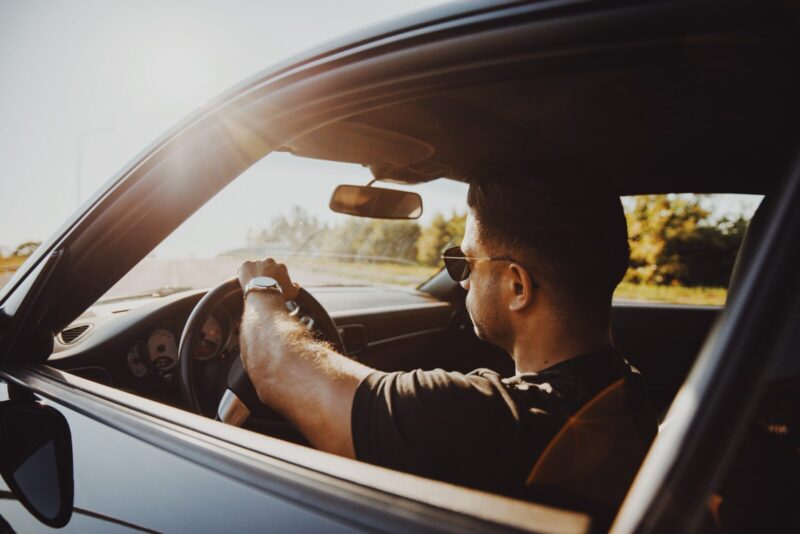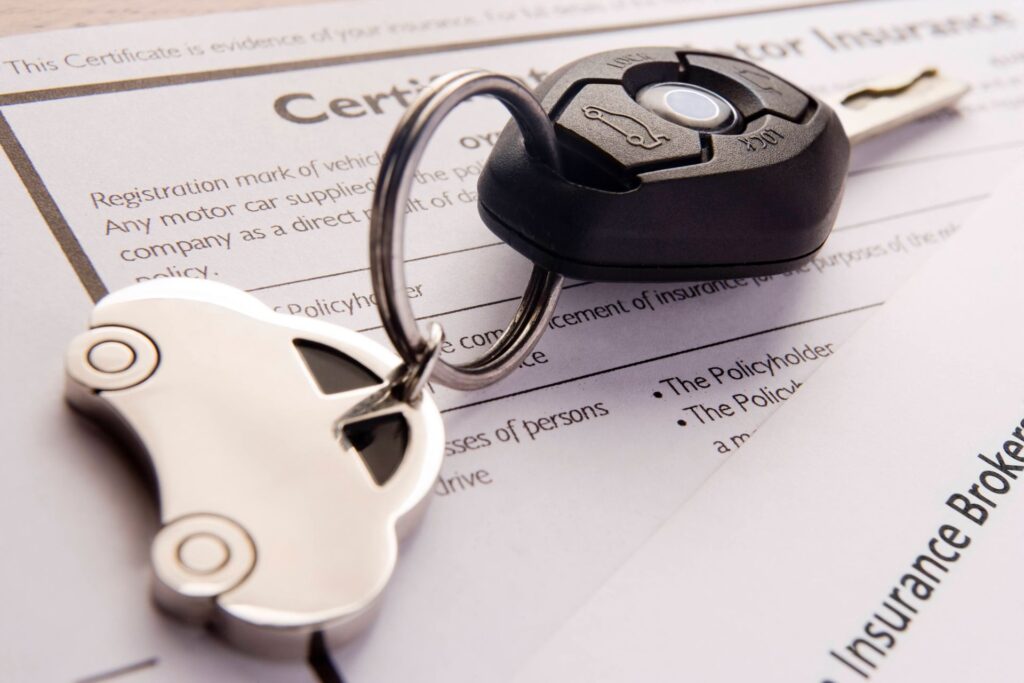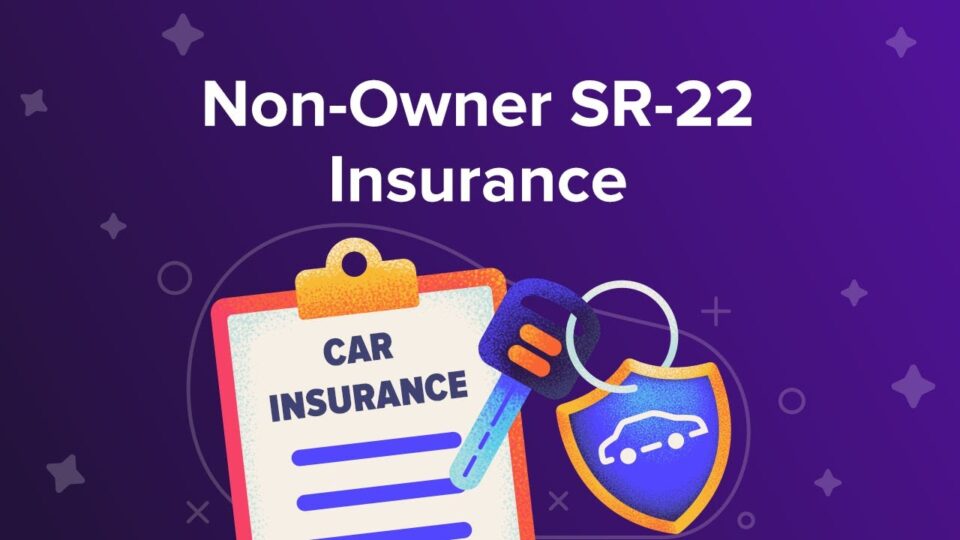SR22 insurance, often referred to as a certificate of financial responsibility, is not conventional insurance. Instead, it is a document that your insurance company provides to prove that you’re maintaining car coverage liability coverage. It’s usually needed after you’ve been convicted of a traffic offense such as DUI or DWI and have had your driver’s license suspended. The SR22 permits you to legally drive again, under the condition that you’re fully insured.
So, who needs SR22 insurance? It is generally required for drivers who are considered high risk due to traffic offenses or violations. It’s a way for the state to ensure that such individuals maintain a minimum level of insurance coverage for a specific period, usually three years, regardless of whether they own a vehicle or not. Therefore, understanding SR22 coverage and what it means for you — especially if you are a non-owner — is important in this aspect of legal and financial responsibility.
Crucial Aspects

To look a little deeper, SR22 insurance is a type of coverage primarily aimed at safeguarding other road users and the state, and not necessarily the policyholder. It’s a guarantee from your insurance company to the state’s Department of Motor Vehicles (DMV) that you are retaining the state-mandated liability coverage. In other words, it’s a proof of continuous coverage. It’s worth mentioning that SR22 is not universal and varies significantly among states, with some states not requiring it at all.
When differentiating SR22 coverage for owners and non-owners, it’s important to understand that both stem from the same purpose – a guarantee of financial responsibility. Owner’s SR22 insurance is associated with individuals who own and operate their own automobiles. Opposingly, non-owner SR22 coverage is designed for individuals who do not own a car, but still need to have coverage due to previous traffic offenses. This policy typically handles liability coverages for the driver when they operate a vehicle they do not own.
What Does Non-Owner Variant Cover?
Non-owner SR22 insurance is an essential layer of protection for drivers who do not own a vehicle but have a history of traffic offenses. It covers liability issues; that is, injuries or property damage inflicted upon others in an accident where you were at fault. Generally, this type compensates the other party for their medical bills, property repair costs, and other related fees. Non-owner SR22 insurance solely focuses on liability coverage and does not include coverages like collision and comprehensive, which serve to protect the vehicle itself.
The application of non-owner SR22 insurance changes with the circumstances you find yourself in. It plays a role if you cause an accident while driving a rented or borrowed vehicle. However, it is essential to understand that non-owner SR22 coverage will be secondary coverage if the vehicle’s owner also has an insurance policy. This means that this insurance kicks in to cover excess damages that the primary policy fails to cover. Therefore, while non-owner SR22 insurance bolsters your protective wall, it operates within the limitations of covering only specific liability-based accidents and damage.
How to Acquire Non-Owner Coverage?

Acquiring non-owner SR22 insurance starts with shopping around for insurance companies that offer this specific type of policy. A usual protocol entails informing the provider of your requirement for an SR22 upfront. Once you have settled on a policy and made the initial payment, the insurance company will then file the SR22 form on your behalf with the state’s Department of Motor Vehicles (DMV). As part of this process, the DMV will usually charge a filing fee that varies from state to state.
Qualifying for non-owner SR22 insurance primarily depends on your current status as a high-risk driver who does not own a car. Eligibility can vary depending on the state laws as well as the policies and standards of the individual insurance provider. The cost of a non-owner SR22 coverage policy can likewise fluctuate dramatically depending on several factors such as your location, your driving record, your age, and how long you’ve been driving. The SR22 itself is not expensive – it’s the label of being a ‘high-risk driver’ that tends to drive insurance premiums up. For this reason, it’s advisable to get quotes from several insurance companies and choose the most cost-effective option.
Impact on Future Insurance Policies
Having a record of needing an SR22 certification can have significant repercussions on future coverage options and premiums. This documentation, often required due to driving-related offenses, signals to insurers that you’re a high-risk driver.
As a result, when you seek standard auto insurance in the future, you may face higher premiums. Insurers perceive a history of high-risk driving as indicative of potential future claims, leading to increased caution and higher charges. This impact can linger for several years, even after the requirement has been lifted.
Therefore, it’s essential for individuals who have had to obtain this certification to be mindful of its long-term effects and explore avenues for risk mitigation and premium reduction, such as safe driving courses or looking for coverage providers that specialize in high-risk coverage.
What Does This Mean for You?

The impact of non-owner SR22 insurance on your driving record can be profound. It’s essential to remember that the requirement for this insurance is flagged on your driving record. While this doesn’t automatically mean increased insurance premiums, it nonetheless confirms your high-risk status to providers, potentially influencing your rates. This coverage requirement can stay on your driving record for multiple years, underlining the importance of maintaining good driving habits and avoiding further violations. The good news is that once you’ve successfully complied with the requirement period, the SR22 status can be lifted, providing some relief for your coverage costs and driving record.
SR22 insurance is an important responsibility for non-vehicle owners with traffic violations or convictions that necessitate proof of their financial responsibility. While the technicalities may appear daunting, gaining a grasp on this insurance can serve as a fundamental lifeline, ensuring your lawful presence on the road even amidst unfortunate circumstances.

